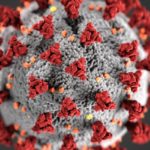1. This study found that most cases of myocarditis or pericarditis following COVID-19 mRNA vaccination occurred in young males after receiving their second dose of the vaccine in relatively short succession from the first dose.
Level of Evidence Rating: 2 (Good)
Study Rundown: The COVID-19 mRNA vaccine has been arguably the most impactful healthcare product developed in recent years. It has had an immensely positive impact on morbidity and mortality outcomes in the ongoing pandemic. Post-vaccine surveillance is a critical part of any vaccine rollout plan in order to understand the long term impacts of this life-saving intervention. This study reports the results of an enhanced vaccine surveillance program in Ontario, Canada, specifically aimed at investigating the rates of myocarditis and pericarditis in individuals who have received the vaccine, and associated risk factors. More than 19 million doses of the COVID-10 mRNA vaccine were administered in Ontario between December 14, 2020 and September 4, 2021; within this time period, 417 cases of myocarditis or pericarditis were reported as post-vaccine adverse events as well. 72.1% of these cases were validated by the study team. Of these 297 cases, most were diagnosed amongst males (76.8%) after they had had their second vaccination (69.7%). The median age of cases was 24 years old. 97.6% of events required a visit to the emergency department and 70.7% required inpatient hospitalization. 86.9% of diagnoses were made within 7 days of vaccination and 97.1% occurred within 30 days of a second dose vaccine. Rates of myocarditis and pericarditis were significantly higher amongst individuals who had an interdose interval shorter than 30 days universally. This study by Buchan et al demonstrates that risk factors for developing myocarditis or pericarditis after COVID-19 vaccination include male sex, young age and a short interdose interval. A primary strength of this study is the large sample size and longitudinal follow up time. Recommendations derived from this work include selecting vaccine products most appropriate for a patient’s age, and to prolong the interdose interval to a safer point. Limitations of this work include the relatively low event rate for the primary outcome of this study as well as the reliance on retrospective data.
Click to read this study in JAMA Network Open
Click to read an accompanying editorial in JAMA Network Open
Relevant reading: Risks of myocarditis, pericarditis and cardiac arrhythmias associated with COVID-19 vaccination or SARS-CoV-2 infection
In-Depth [retrospective cohort study]: A retrospective cohort study was conducted. Data were obtained from the Public Health Case and Contact Management Solution, an electronic reporting system for adverse events following vaccination in the province of Ontario, Canada. Key words pertaining to the outcomes of myocarditis and pericarditis were searched in the available database, and relevant cases were reviewed by a team of trained researchers. The median age of cases was 24 years (range 12-81). 53.5% of events occurred after having received the BNT162b2 vaccine product and 46.5% occurred with the mRNA-1273 vaccine product. The clinical diagnosis was myocarditis in 35.4% of cases, pericarditis in 28.6% of cases and myopericarditis in 36.0% of cases. There were 0 deaths attributable to the outcome or the vaccine in this study. The outcome rate amongst BNT162b2 recipients who had received their second dose less than 30 days following their first dose was 52.1 cases per million doses (95% confidence interval 31.8-80.5 cases per million doses), and was 83.9 (47.0-138.4) for recipients fo the mRNA-1273 product. However, the outcome rate amongst BNT162b2 recipients who had received their second dose more than 56 days following their first dose was 9.6 cases per million doses (95% confidence interval 6.5-13.6 cases per million doses), and was 16.2 (10.2-24.6) for recipients of the mRNA-1273 product.
Image: PD
©2022 2 Minute Medicine, Inc. All rights reserved. No works may be reproduced without expressed written consent from 2 Minute Medicine, Inc. Inquire about licensing here. No article should be construed as medical advice and is not intended as such by the authors or by 2 Minute Medicine, Inc.


